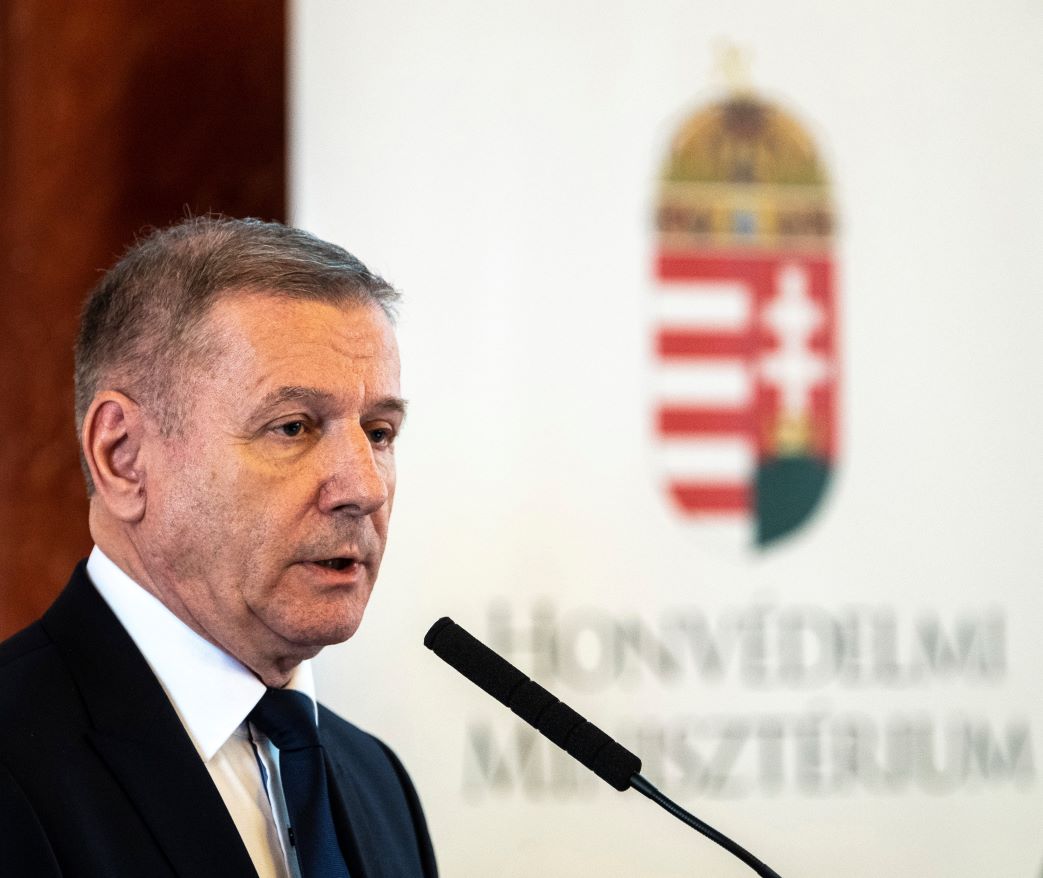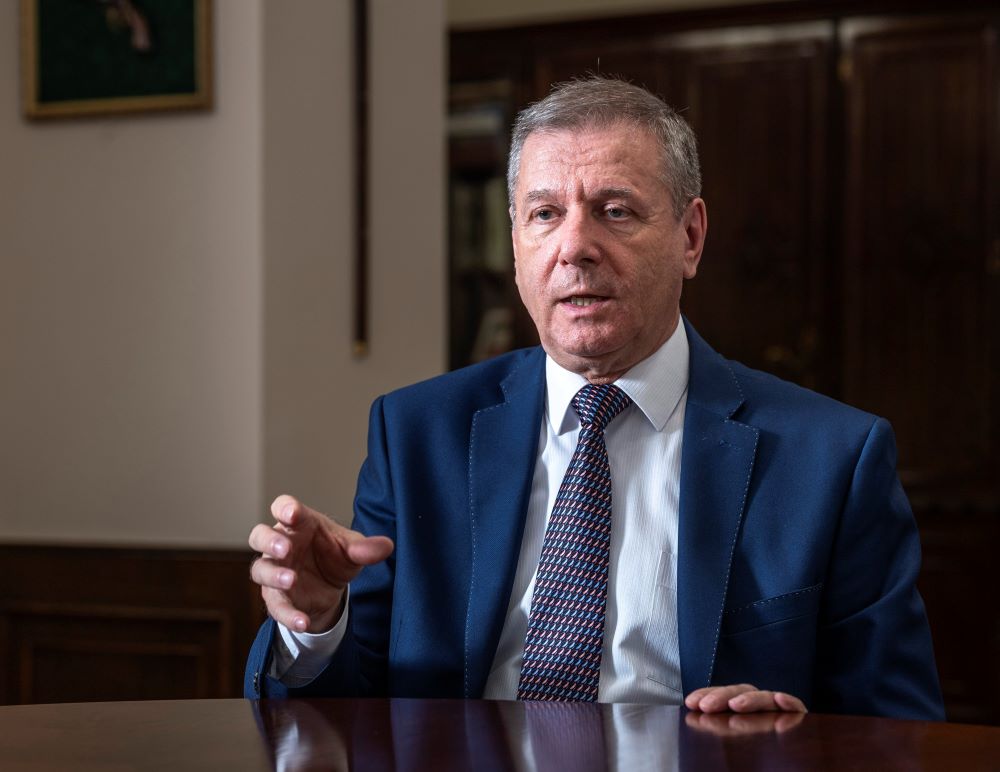Tibor Benkő: It is important for Hungary to have its own military industry to avoid becoming vulnerable
EnglishNATO has not completed all its tasks in Afghanistan, so there is a possibility that an international coalition operation will be launched in the near future, Defence Minister Tibor Benkő told Növekedés.hu. He also said that it is worth investing in the military industry and that the Hungarian Defence Forces are already the best in the region in some areas.
A combat vehicle factory and a test circuit are being built in Zalaegerszeg, a helicopter factory in Gyula. Newer and newer huge military industry investment projects are being launched, all involving large investment costs. Is it worth investing so much money in the manufacturing of weapons?
We are still in the early stages of the military industry development. We have to make a lot of sacrifices, but by doing so we can avoid becoming vulnerable. It is important to have our own military industry so that we are able to take care of ourselves. This is a security issue and its value cannot be expressed in money.
When these factories are completed, it will have an immediate impact on employment. Jobs will be created where workers can get involved in the construction and development of 21st century combat equipment, in research and development.
By the time production starts, market research will have been carried out so that we can appear with these combat vehicles on the international market. The money from the sales will strengthen the Hungarian economy.
The term ‘2026’ is no longer used in the name of the Zrínyi 2026 Defence and Military Development Program. Is there a new target date yet?
We are no longer talking about Zrínyi 2026 because the development is going on continuously. The challenges that we have to address are constantly changing.
The wave of migration developed in a very short time, and the Ukrainian conflict also escalated overnight. The technical equipment ordered by the defence forces in the recent period will arrive by 2026, but there are also some that will have to be replaced then.
In other words, we have short-term plans to deal with the challenges of the near future, but we also have to look much further ahead in the area of science - in innovation and research and development – so there we are making longer term plans. 
Last year, several large scale procurements were announced affecting almost all branches from the Air Force to the Ground Forces. What else can be expected?
In the Air Force, for example, we will have to deal with the future of the Gripens. The contract that currently enables Hungary to use these machines expires in 2026.
The most important question for the future is what we should replace the Swedish machines with. In addition, there are also the domestic gunpowder and ammunition production plants, for which we do not have an agreement at the moment.
It has been stated many times that the aim of the Hungarian Armed Forces is to become a dominant military power in the region. How are we getting on compared to our neighbours?
There are already areas in which we have taken the lead. We have proven in recent years that we have achieved everything that we have undertaken in the field of military development; and this is recognized by the leading nations of NATO.
In addition to modernizing armaments, the career path of soldiers is considered by many to be an example to follow; and we are also getting ahead in making the military career attractive with patriotic education and a cadet program. In addition to standing up for our national interests, our alliance is also important.
We successfully set up a NATO-level command element: the Multinational Division Command, which has already been joined by Croatia and Slovakia. We already achieved the initial capabilities at the Regional Special Operations Component Command in Szolnok, which was joined by non-NATO member Austria, in addition to our regional NATO partners.
It was also a good decision to have the NATO Centre of Excellence for Military Medicine in Hungary. The amount of work carried out by the army during the pandemic was also outstanding in Europe. During the epidemic, it was in Hungary that soldiers were first used in many areas and in great numbers.
Although initially these measures were strongly criticized by some opposition politicians, and many tried to question the competence and preparedness of the soldiers and turn the population against the military, now I’ve read about hospitals already missing the work of soldiers.
From November, KFOR will have a Hungarian commander, which has never happened before. The number of Hungarian soldiers on military missions in the Balkans is also increasing. Do these help the process of more and more Hungarian companies starting to expand in foreign markets in the Western Balkans?
It is the first time that a Hungarian general will become the commander of KFOR; this position has so far been mostly held by Italians. The international recognition of the Hungarian Armed Forces is well illustrated by the fact that in Afghanistan the special operations forces were under Hungarian command in some areas. 
The change of command in Kosovo will be accompanied by an increase in the number of our troops serving in the mission, and there will also be around seven hundred troops on standby at home, who can be transferred very quickly with combat equipment and gear if needed.
KFOR aims to stabilize the countries of the Western Balkans so that they can become economically viable. Growth requires first and foremost peace, to which Hungarian soldiers also greatly contribute, thus indirectly promoting investment in the region.
The last Hungarian soldiers have returned from Afghanistan after eighteen years. How successful do you think the NATO mission was?
During these nearly two decades, Hungarian soldiers took part in a wide variety of tasks. NATO decided to terminate the mission on September 11 this year.
The main principle was, from the very beginning, that we would go in and also come out together, and we are still complying with this principle. At the same time, it is already clear that the alliance has not been able to achieve all their goals in the region.
But in the meantime, there are rumours of a possible follow-up already…
Many nations believe that there is still work to be done and we should not risk losing everything we have achieved in Afghanistan so far. Although no similar mission is currently being planned within NATO, this does not rule out a new international coalition operation with different orientation using different instruments.
Hungary has already received such request, mainly thanks to the experience we gained in the protection of the International Airport in Kabul, but no decision has been made yet on this issue.
Last month, there was a change of command in the defence forces. According to some, Major General Romulusz Ruszin-Szendi was appointed because of his experience in human resources. Is that really going to be his job?
The defence and military development program is not just about acquiring weapons and creating a military industry, but also about personnel. We need to offer soldiers a career path, which is one of the key factors of military recruitment.
Indeed, one of the main tasks of General Ruszin is to retain the soldiers currently serving in the army. It is extremely important that those who have already received military training continue to serve for as long as possible.
Apart from that, we have to make sure that young people will be happy to join the military. It is another task of ours that should be given priority.
